Calan Breckon • Published April 5th, 2024
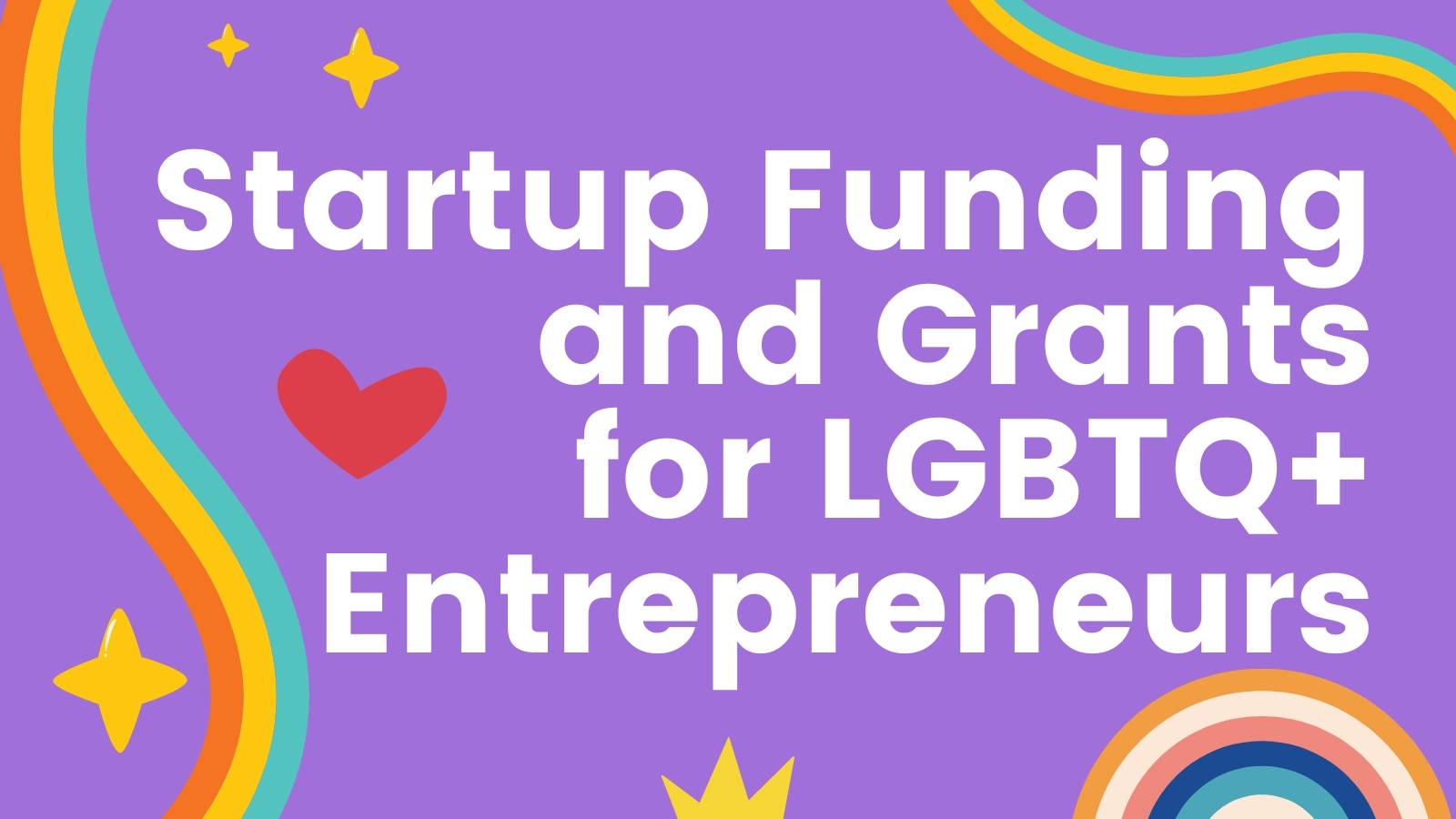
The dream of starting your own business can be incredibly fulfilling and for LGBTQ+ entrepreneurs it can also be a powerful way to break barriers and create a more inclusive and equitable economic landscape.
However, securing the necessary funding to turn that dream into reality can be a significant hurdle.
In this blog post, I’m going to try my best to equip you with the knowledge and resources needed to navigate the world of startup funding. We’ll explore various funding avenues, from traditional options like bank loans to other solutions like angel investors and venture capitalists.
We’ll also explore how much funding, specific startup grants, and resources are tailored to support LGBTQ+ entrepreneurs through their journey.
Key Takeaways
- An overview of what Startup Capital is and the different ways you can generate it
- A list of organizations and VC’s that work specifically to help fund LGBTQ+ owned businesses
What is Start-Up Capital?

Before diving into different funding and business loan options, let’s understand what “startup capital” entails.
It refers to the initial financial resources required to launch and sustain a new business for a specific period, typically until it becomes profitable and can generate revenue.
These funds encompass a broad spectrum of expenses, crucial for the various stages of establishing your business:
- Market research and feasibility studies: Gathering data and insights to understand your target market, potential competitors, and the overall viability of your business idea.
- Business registration and licensing fees: Obtaining the necessary permits and licenses to operate legally in your chosen location and industry.
- Product development and prototyping: Creating a tangible representation of your product (MVP aka minimum viable product) or service to test its functionality, gather user feedback, and refine your offering.
- Equipment and technology purchases: Acquiring the necessary hardware, software, and other physical assets needed to operate your business.
- Marketing and advertising costs: Implement strategies to reach your target audience, build brand awareness, and generate leads.
- Rent and utilities: Securing office space, if needed, and covering operational costs like electricity, internet, and phone service.
- Salaries and wages: Compensating yourself and any employees you hire to run your business.
Essentially, startup capital acts as the lifeblood of your fledgling business, fueling its growth and ensuring its day-to-day operations until it reaches financial self-sufficiency.
How Startup Funding Works

There are various funding opportunities, each with its own set of advantages and limitations.
It’s crucial to carefully assess your specific needs and circumstances, such as the stage of your business, funding requirements, risk tolerance, and long-term goals, when identifying the most suitable approach for your venture.
Just because you’re going into tech doesn’t mean you need to raise a ton of money and go to the moon. It’s just as manageable to bootstrap and do well. I believe more bootstrapping is better for a company because you learn how to run lean and in the long run it will benefit your company since you don’t have to give away a ton of equity to build your product.
But, let’s explore all the options…
Personal Business Loans
These loans allow you to borrow funds from a financial institution such as a bank or credit union, leveraging your personal assets or credit history as collateral.
While they can offer potentially favourable interest rates depending on your creditworthiness, they require a strong credit history but pose a significant risk in putting your assets at stake.
If you’re running a more “mom and pop – pop and pop – mom and mom” style business or just working as a sole proprietor, then this is your best option as investors don’t invest in those types of businesses.
Business credit cards
Business credit cards provide a convenient way to finance smaller initial operating expenses and help build your business credit history.
However, they come with high interest rates and the temptation to overspend, making them potentially expensive options in the long run.
Credit is a slippery slope so unless you’re really good at paying everything off at the end of the month, so be very wary.
Small Business Grants
Government agencies and non-profit organizations offer various grant programs specifically designed to support small businesses, particularly those owned by individuals from marginalized communities, including LGBTQ+ entrepreneurs.
These grants provide free funding, requiring no repayment, and often align with mission-driven values like promoting diversity and inclusion in the business landscape.
Government grants can be used to support various aspects of your business journey, from initial research and development to marketing and expansion initiatives.
However, the application process for grants can be highly competitive, with stringent eligibility criteria and lengthy timeframes.
It’s essential to meticulously research available grants, meet all eligibility requirements, and craft compelling proposals that effectively communicate your business concept, impact potential, and alignment with the grant’s mission and objectives.
Additionally, government grants may have specific funding limitations or restrictions on how the funds can be used, requiring careful planning and adherence to these guidelines to ensure proper utilization of the awarded funds.
I know a lot of non-profit organizations that specifically have a staff member whose main job is drafting and submitting grant applications.
Venture Capital & Startup Funding Rounds
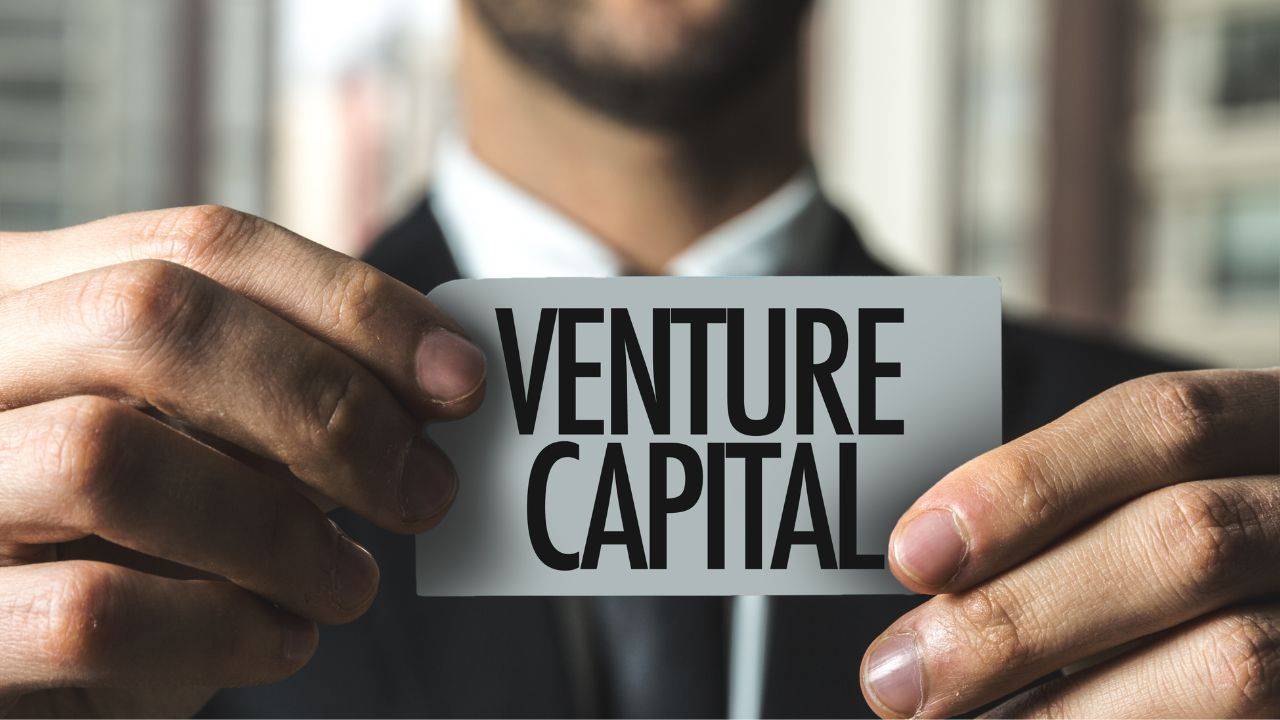
Venture capital firms (VCs) are specialized investment firms that raise capital from various sources, such as institutional investors, and invest it in promising early-stage and high-growth businesses.
They act as a bridge between entrepreneurs and larger pools of capital providing the financial resources needed to fuel business growth in exchange for equity ownership (a stake in the company) and possibly a significant role in decision-making depending on the terms.
This partnership is formalized through funding rounds, which represent distinct stages of a company’s growth journey, each with its own characteristics, investment amounts, and expectations.
Friends and Family Fundraising
Leveraging your personal network for financial support can be a potentially flexible way to raise capital for your business.
Loved ones who believe in you and your vision may be more open to offering flexible terms and repayment options, fostering a stronger sense of community and shared ownership in your success.
However, it’s crucial to navigate the balance between personal relationships and business dealings carefully.
Setting clear expectations regarding repayment terms, potential risks involved, and ownership structures upfront is essential to avoid jeopardizing personal connections and ensuring a smooth and successful fundraising experience.
We call this the “Friends and Family” fundraising round and it’s usually the first money you’ll get if you’re looking to build one of those big companies that will eventually lead into seed, series A, B, and C fundraising.
The hard part with the LGBTQ+ community though is that sometimes we don’t have the friends and family option due to maybe being kicked out for being who we are, etc. Programs are starting to crop up to specifically help LGBTQ+ entrepreneurs, but we will talk about them a little later in this post.
Pre-Seed Funding startups
Pre-seed funding, often referred to as “angel funding,” is the earliest stage of investment that usually blends with or comes directly after Friends & Family. It typically involves smaller amounts, ranging from $5,000 to $250,000 from each investor, and focuses on validating your business concept and developing a minimum viable product (MVP). This initial stage allows you to:
Test your idea: Gain valuable insights from potential users and refine your product or service based on their feedback.
Build a prototype: Create a tangible representation of your product to showcase its functionality and gather further user feedback.
Develop a business plan: Outline your long-term vision, define your target market, and create a solid financial model.
In today’s market, a lot of founders use what are called SAFEs in order to raise these early amounts. SAFE stands for a “simple agreement for future equity” and you can think of it as a legal promise that when your first series A happens and your first major valuation along with that, these folks get first dibs on whatever agreement you made with them.
That’s why it’s important to have a good legal council while drafting these agreements.
You can grab yourself free versions of the Y Combinator SAFEs on their website.
Angel Investors
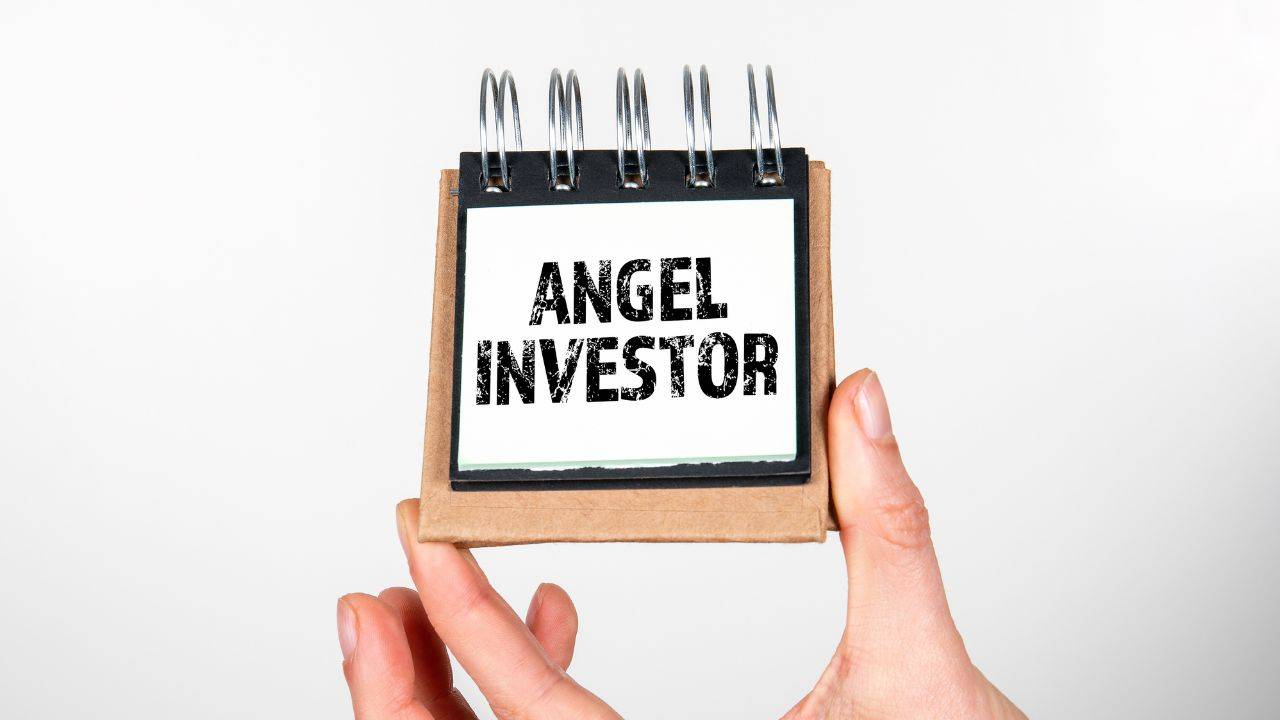
For businesses with high growth potential, attracting investment from an angel investor can be a transformative opportunity.
Angel investors are wealthy individuals who invest their own money in early-stage businesses with promising prospects. This is different from the aforementioned VCs who collect a large amount of money from many investors and then manage those investments for those investors.
These individuals often bring valuable experience, mentorship, and connections to the table, providing strategic guidance and support beyond just financial resources.
This can be particularly beneficial for LGBTQ+ entrepreneurs who may face additional challenges in accessing traditional funding sources.
However, attracting an angel investor is a highly selective process that requires a strong business plan, a clear path towards profitability, and the ability to effectively pitch your vision and convince investors of the potential success of your venture.
Additionally, angel investors typically expect significant equity ownership in your company in exchange for their investment, which requires careful consideration of the long-term implications of relinquishing ownership or equity stake in exchange for the immediate financial boost. Expectations usually range around 10%-20% of equity.
How Series A Funding Works
Series A funding round represents a significantly larger investment compared to pre-seed funding rounds, typically raising capital ranging from $2 million to $10 million. This could be a year or even a few years after your seed round depending on how much revenue you’re bringing in. There is no set time limit to making it to your first major priced round.
This round aims to:
Validate product-market fit: Demonstrate that your product or service addresses a real need in the market and has the potential for massive commercial success.
Build and launch your product: Secure the necessary resources to develop and launch a fully functional version of your product or service that evolves out of your MVP.
Assemble your team: Hire key personnel like engineers, marketers, and sales representatives to support your growth.
Establish your brand: Develop your brand identity and launch marketing initiatives to attract customers.
How Series B Funding Works
Series B funding acts as the fuel for rapid expansion for many startups. Keep in mind, many companies don’t even get to this point. If you’re doing well with just a series A, then you might not need a series B. This funding round typically involves significant investments ranging from $10 million to $50 million and aims to:
Scale your operations: Increase production, marketing, and sales efforts to reach a larger customer base and achieve rapid growth.
Expand your market reach: Enter new markets or geographical locations to further increase your customer base.
Develop new products or features: Enhance your existing offerings or introduce new products to maintain a competitive edge.
Strengthen your team: Hire additional staff to support your expanding operations and expertise in various areas.
How Series C Funding Works
Series C funding signifies a mature stage in a company’s journey. This round typically involves substantial investments exceeding $50 million and focuses on:
Acquisitions: Strategically acquire other companies to expand your market share, acquire new technologies, or gain access to additional resources.
Further expansion: Aggressively invest in scaling operations, entering new markets, and potentially preparing for an initial public offering (IPO), where the company sells its shares to the public on a stock exchange.
Long-term strategic initiatives: Invest in projects that will significantly impact your long-term growth and stability.
Business Incubators, Accelerator Programs, and VC Funds
Business incubators and accelerator programs provide valuable resources, mentorship, networking opportunities, and sometimes even funding to support aspiring entrepreneurs.
These programs offer a structured environment for learning, growth, and development, often focusing on specific industries or stages of business development.
A few cater specifically to LGBTQ+ businesses, offering a supportive and inclusive environment for entrepreneurs to connect with like-minded individuals and access resources tailored to their unique needs.
Choosing the right funding strategy for your business requires careful consideration of your specific needs, goals, and risk tolerance.
By understanding the advantages and drawbacks of each option and exploring resources dedicated to supporting LGBTQ+ entrepreneurs, you can navigate the funding landscape effectively and secure the capital necessary to turn your dreams into reality.
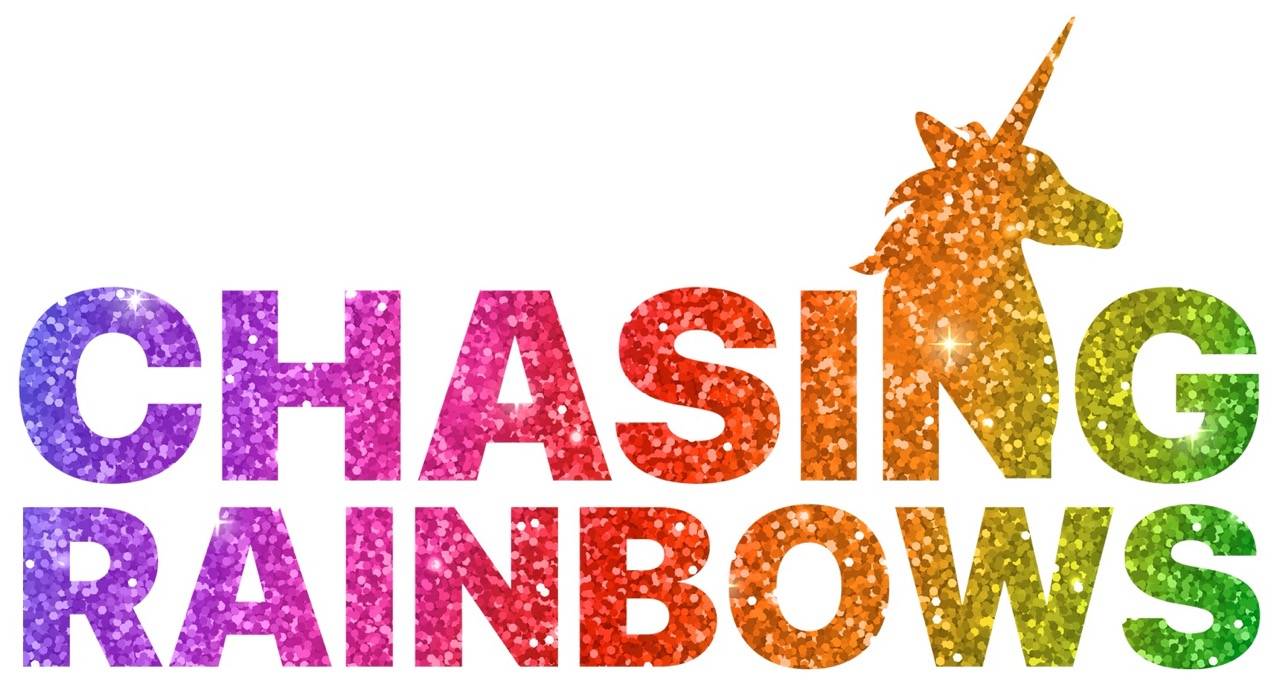
A first-of-its-kind venture capital firm specifically investing in LGBTQ+ startups and businesses.
Benefits:
Aligned values: Invests in businesses that share their commitment to LGBTQ+ inclusion and environmental sustainability, fostering a sense of partnership and shared vision.
Mentorship and connections: Provides access to experienced mentors and a network of individuals passionate about supporting LGBTQ+ and sustainable ventures, offering valuable guidance and potential introductions to key stakeholders.
Financial resources: Offers venture capital funding to support the growth and expansion of promising LGBTQ+ businesses.
Considerations:
Investment criteria: As with any VC firm, Chasing Rainbows has specific investment criteria and typically seeks businesses with high growth potential and a strong social impact.
Competitive process: Securing funding from Chasing Rainbows can be competitive, requiring a well-defined business plan, a compelling value proposition, and a clear demonstration of your alignment with their investment focus.
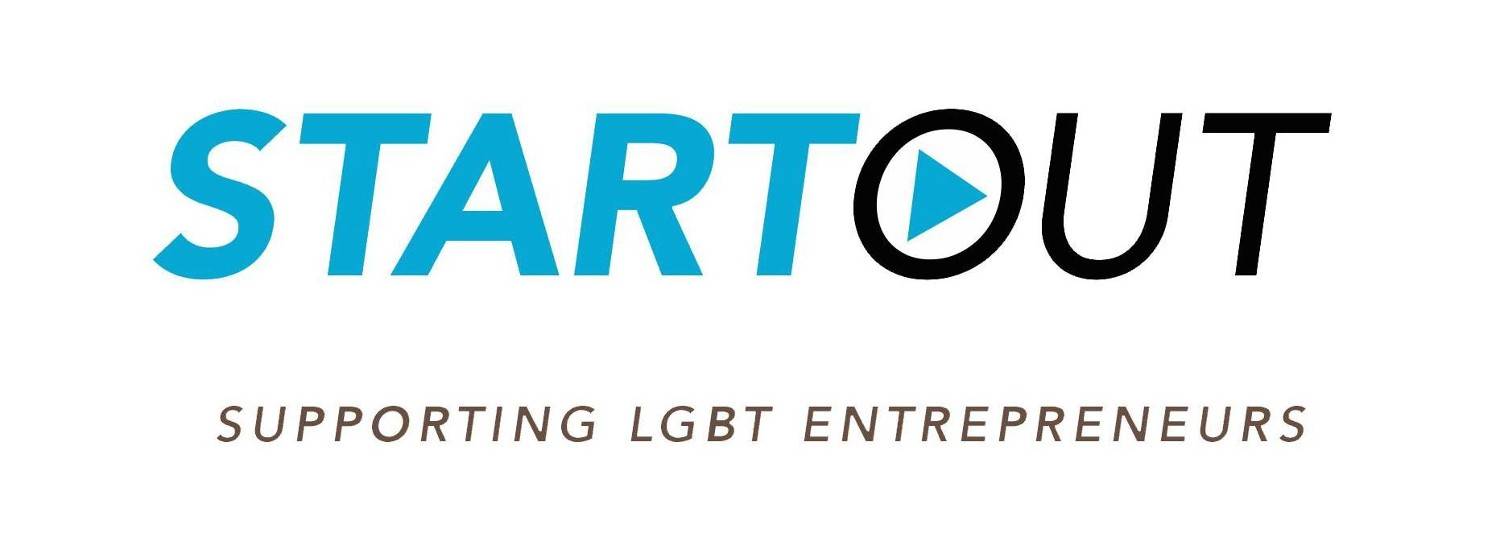
A national non-profit organization dedicated to empowering LGBTQ+ entrepreneurs.
Benefits:
Educational resources: Offers a wealth of educational resources, including webinars, workshops, and online courses, covering various topics relevant to LGBTQ+ entrepreneurs, such as business planning, marketing, and fundraising.
Mentorship programs: Connects aspiring LGBTQ+ entrepreneurs with experienced mentors from the LGBTQ+ business community who can provide personalized guidance and support based on their own experiences.
Funding opportunities: Provides access to scholarships, awards, grants, and their accelerator “Growth Lab” program specifically designed to support LGBTQ+ businesses at various stages of development. It’s important to note that StartOut doesn’t take any equity as part of their accelerator program unlike how some other big-name programs, like Y Combinator, do.
Considerations:
Location: While StartOut offers resources and programs internationally, some initiatives may have specific geographic limitations.
Program eligibility: Certain programs or resources may have specific eligibility criteria, so carefully review individual program details before applying.
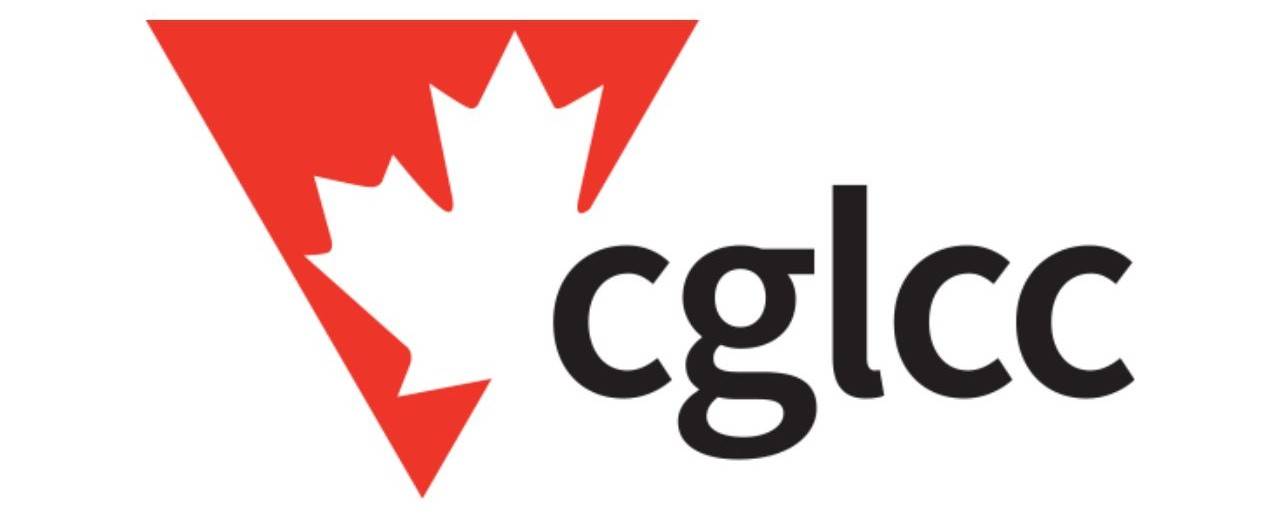
Programs offered by the Canadian LGBTQ+ Chamber of Commerce (CGLCC) are specifically targeted at supporting 2SLGBTQI+ entrepreneurs in Canada.
Benefits:
Financial assistance: Grants are limited mostly to non-profits that are working to support LGBTQ+ entrepreneurs in Canada and conducting research in the field. There are no direct financial offerings to entrepreneurs but there are many other membership benefits.
Networking opportunities: Participation in CGLCC programs can connect you with other 2SLGBTQI+ entrepreneurs, fostering a sense of community and offering valuable networking opportunities.
Certification Programs: The CGLCC offers certifications for both LGBTQ+ businesses and ally businesses.
- OUT for Business: The CGLCC entrepreneur mentorship program offers a year-long program that helps new entrepreneurs navigate the business world. I went through the program in 22/23 and had a great experience.

Government initiative designed to help small and medium-sized businesses (SMBs) adopt and improve their digital technology.
Benefits:
Financial assistance: Offers grants to help businesses invest in e-commerce, digital marketing, and other digital tools, regardless of their sexual orientation or gender identity.
Expert advice: Provides access to digital transformation advisors who can assess your business needs and recommend the most suitable digital tools and strategies.
Training and workshops: Offers various training workshops to help businesses develop the skills and knowledge needed to effectively utilize digital tools and technologies.
Considerations:
Program requirements: To be eligible for CDAP grants, businesses must meet specific criteria, such as having a valid business number, employing a certain number of employees, and made a certain dollar amount over the previous year.
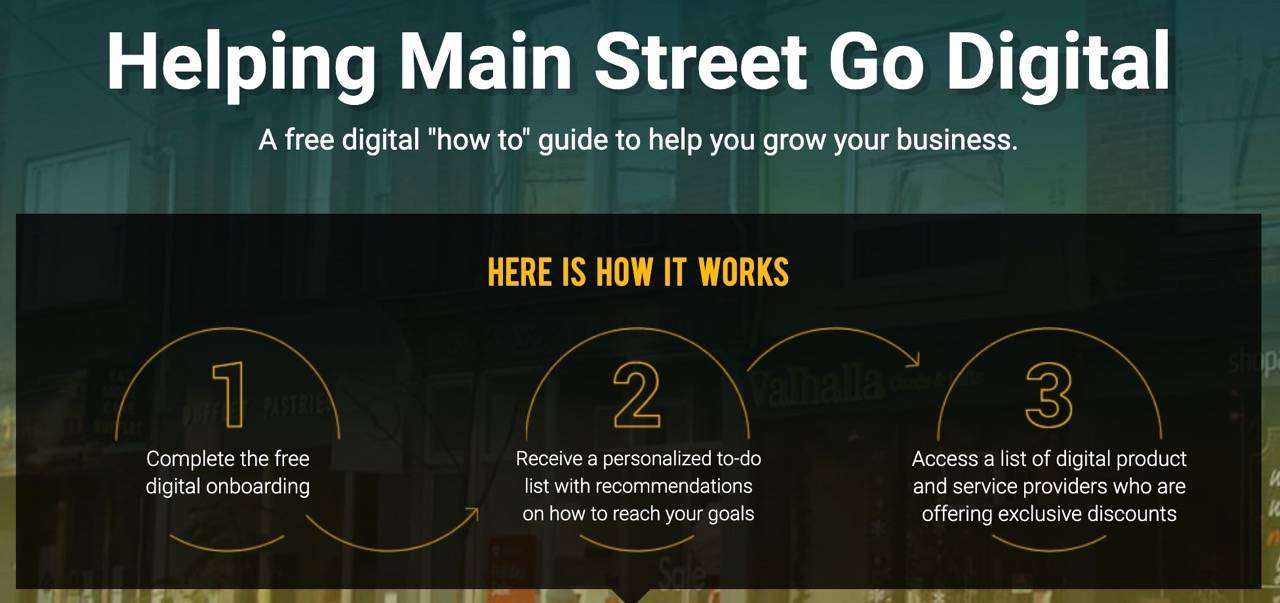
Canadian government initiative specifically aimed at supporting the digital transformation of Main Street businesses.
Benefits:
Financial assistance: Offers grants to help businesses improve their online presence, customer engagement strategies, and overall digital capabilities.
Training and workshops: Provides a variety of training workshops on topics like website development, social media marketing, and search engine optimization (SEO), equipping participants with the skills needed to thrive online.
Expert advice: Connects businesses with digital transformation advisors who can offer personalized guidance and support tailored to their specific needs and goals.
Considerations:
Canadian focus: This program is exclusively available to businesses operating in Canada.
Program eligibility: Specific eligibility criteria may apply, such as location and industry, so carefully review the program guidelines before proceeding.
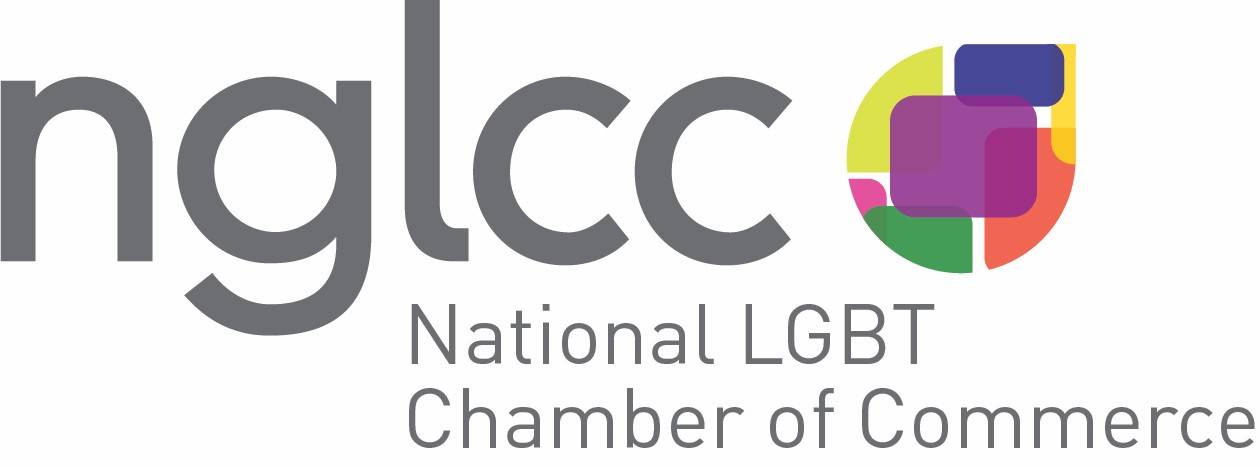
Grant programs offered by the National LGBTQ+ Chamber of Commerce (NGLCC) in the United States.
Benefits:
Financial support: Provides grants to LGBTQ+ owned businesses for various purposes, including marketing initiatives, business expansion, and technology implementation. This financial assistance can be crucial in overcoming challenges and fueling growth.
Networking opportunities: Participating in NGLCC programs facilitates connections with other LGBTQ+ businesses and organizations, fostering a sense of community and offering valuable networking opportunities.
Increased visibility: Receiving an NGLCC grant can enhance your business’s visibility and recognition within the LGBTQ+ business community and the broader business landscape.
Considerations:
US focus: These grants are exclusively available to LGBTQ+ owned businesses operating in the United States.
Competitive process: Securing an NGLCC grant can be competitive, requiring a well-defined business plan, a compelling application demonstrating the impact of your venture, and alignment with their program goals.
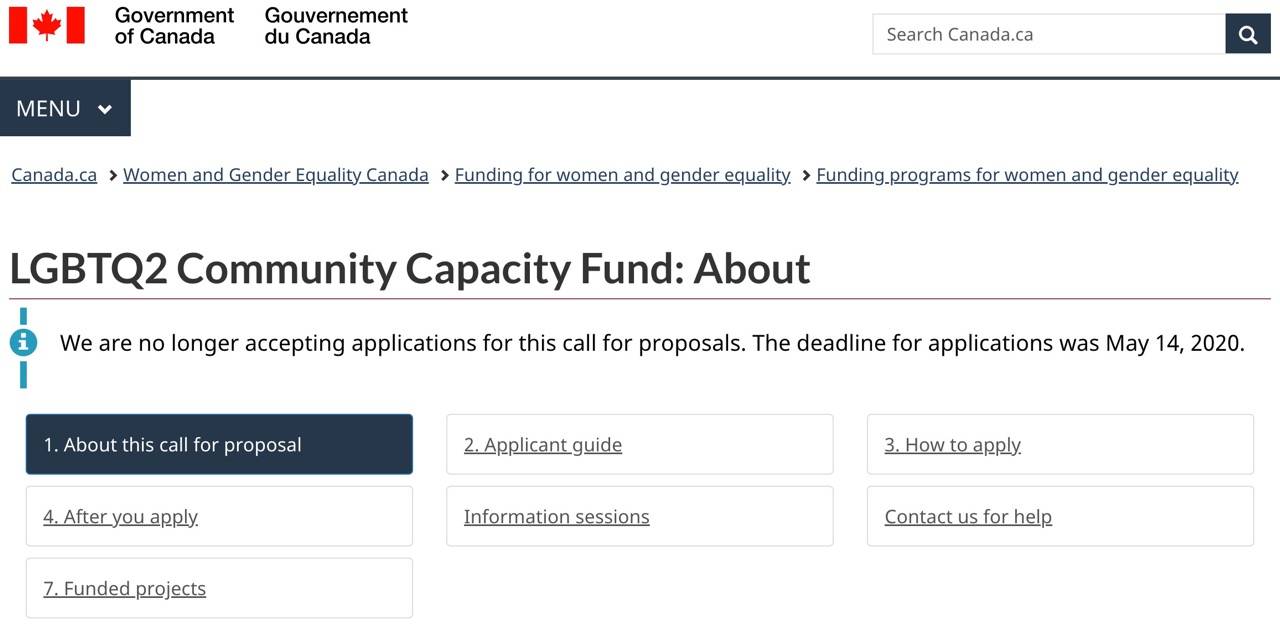
The LGBTQ2 Community Capacity Fund is a Canadian government fund that was established to invest in LGBTQ2+ non-profit organizations across the country.
Benefits:
Indirect support: While not directly focused on business initiatives, this fund supports LGBTQ2+ organizations that provide resources and support to LGBTQ+ entrepreneurs. By strengthening the infrastructure and resources available to the LGBTQ2+ community, it indirectly contributes to the success of LGBTQ+ businesses.
Potential partnerships: Connecting with organizations funded by the LGBTQ2 Community Capacity Fund could lead to valuable partnerships and access to resources that are indirectly beneficial to your business venture.
Considerations:
Application process: Nonprofit organizations, not individual businesses, apply for funding from this program. However, you can explore opportunities to connect with funded organizations and benefit from their resources.
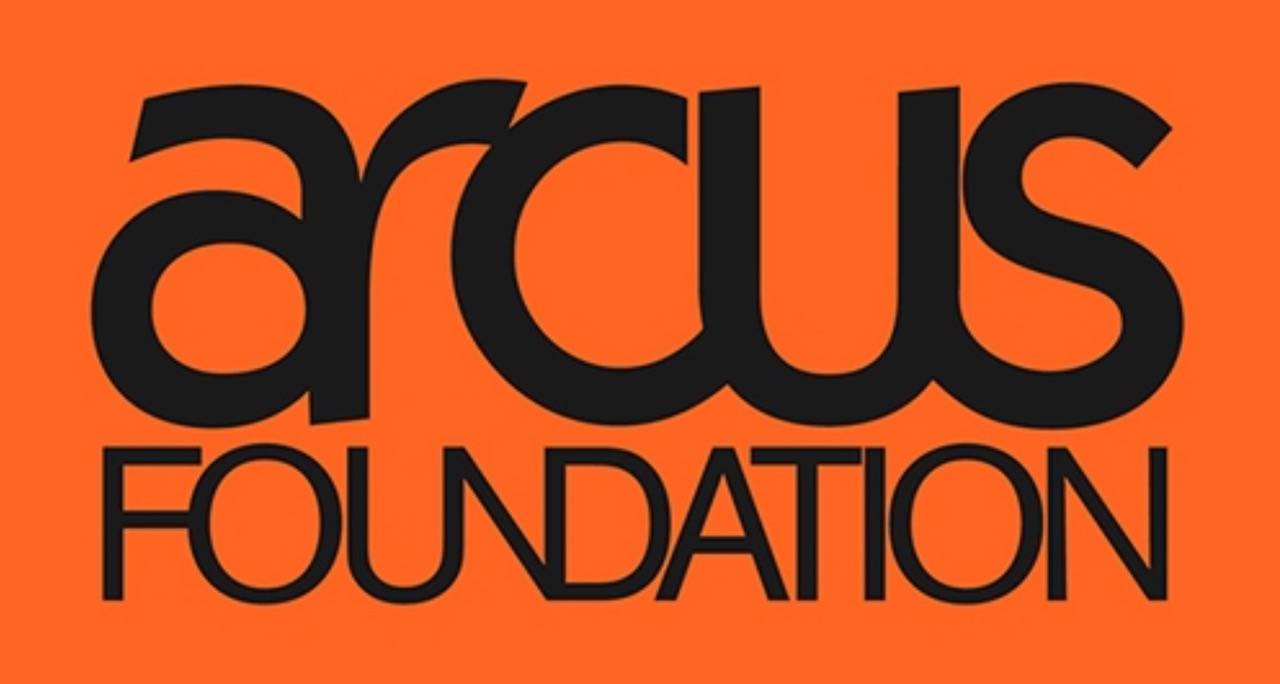
Grant program offered by the Arcus Foundation, a global foundation dedicated to advancing social justice and equality for LGBTQ+ people around the world.
Benefits:
Financial support: Provides grants to various organizations and initiatives working towards social justice for LGBTQ+ people, including some that support LGBTQ+ owned businesses. This financial assistance can contribute to building a more inclusive and supportive business environment for LGBTQ+ entrepreneurs.
Alignment with values: Aligned with the mission of many LGBTQ+ entrepreneurs, receiving a grant from the Arcus Foundation can strengthen your commitment to social justice and LGBTQ+ inclusion.
Considerations:
Competitive process: Securing an Arcus Foundation grant can be competitive, requiring a compelling application that demonstrates your alignment with their social justice mission and the impact of your project.
Summary
No question about it, finding funding as an open and out member of the LGBTQ+ community can make it harder to be a founder, but not impossible.
We’re a resilient community that is quite familiar with adversity and we aren’t afraid of a challenge. This gives us an advantage when it comes to business and not giving up.
If you’re looking for more options for grants and funding, you can find some in this article on Grants for LGBTQ+ Owned Businesses and Entrepreneurs on HubSpot.
Frequently Asked Questions
LGBTQ+ entrepreneurs may face systemic biases and limited access to traditional financial resources compared to non-LGBTQ+ businesses. This can be due to factors like historical discrimination, lack of awareness among investors in international markets, and limited representation in the business world.
Funding programs designed for LGBTQ+ entrepreneurs often come with additional benefits beyond just financial support. These may include mentorship, networking opportunities, and access to resources tailored to the unique needs and challenges faced by LGBTQ+ businesses.
Developing a strong business plan, demonstrating a clear path to profitability, and showcasing your passion and commitment to your venture can significantly increase your chances of securing funding. Additionally, carefully researching specific funding options and tailoring your application to meet their criteria is crucial.
Beyond traditional business loans and grants, LGBTQ+ entrepreneurs can explore equity crowdfunding platforms, angel investor networks specifically focused on LGBTQ+ businesses (like StartOut), and community development financial institutions (CDFIs) that cater to underserved communities.
A few organizations and online resources offer support and resources specifically for LGBTQ+ entrepreneurs. Some examples include StartOut, the National LGBTQ+ Chamber of Commerce (NGLCC), and the Canadian LGBTQ+ Chamber of Commerce (CGLCC).

